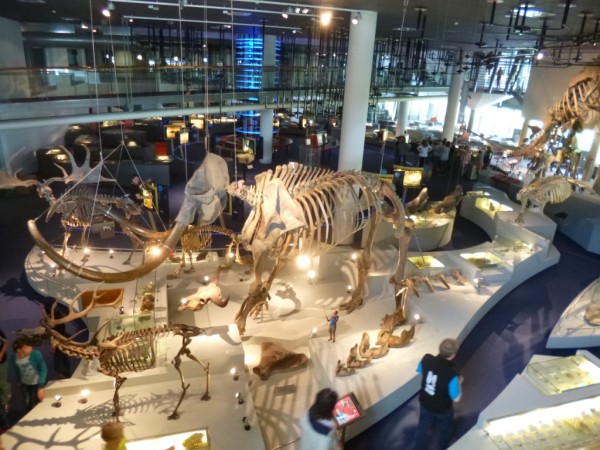The word “science” has its roots in the Latin for ‘knowledge’, and historically it has been used to describe any systematic body of knowledge. In common parlance, however, it tends to pertain to a particular approach to studying physical / natural phenomena, based on testable hypotheses, systematic gathering of evidence and conducing experiments.
So what do visitors to Natural History museums think “science” is? How do these beliefs influence how relevant they see science to their everyday lives? Do they see the connection between science and the work that Natural History museums do?

These were the guiding questions for a qualitative study conducted by Jennifer DeWitt and Emma Pegram at the Natural History Museum in London, as reported in the most recent issue of Visitor Studies. They interviewed 20 family groups in different parts of the museum, asking them questions about what they found interesting in the museum, whether they thought the museum was a ‘sciencey’ place or not, and whether they participated in science activities in their daily lives.
Visitors were split as to whether they thought the museum staff they interacted with were ‘sciencey’ or not. Staff were considered ‘sciencey’ when they demonstrated subject-specific knowledge, but facilitating enquiry in others was not necessarily a ‘sciencey’ thing for staff to do (visitors drew a distinction between ‘science’ and ‘education’ in this sense). Families more commonly described the activities they took part in at the museum as ‘sciencey’ – hallmarks of ‘sciencey’ activities were the use of technical equipment such as microscopes, detailed observation and specialist terminology. However, there was also evidence that activities that were accessible or friendly were considered not ‘sciencey’ for that reason.

When it came to the Museum itself, visitors were equivocal as to whether it was a ‘science place’, having different views regarding whether particular types of content, exhibits or activities constituted ‘science’. Again a perceived conflict between ‘science’ and ‘education’ came up. And interestingly, some visitors did not consider natural history to constitute science*.
Perceptions of whether the museum was a science place or not were informed by each family’s prior conceptions of science. While 19 of the 20 families had at least one member who claimed to be interested in science, only a minority of families considered themselves ‘sciencey’. Further probing often revealed that families often did participate in science related activities (e.g. rock collecting) but such activities did not fall within the relatively narrow conception of ‘science’ that most participants had. “Science” conjured up the notion of “facts” or expert knowledge that was not particularly accessible. It was more readily associated with the physical sciences and technology than with nature.
Admittedly this study is based on a small sample, but it points to some interesting preconceptions about what science is, as well as a potential disconnect between how Natural History museums see themselves, and how they are viewed by their audiences.
*The authors concede that in their particular case, being adjacent to the Science Museum may reinforce the perception of the Natural History Museum being something other than science.
